Find Abstract Data Types Stacks An abstract data type AD a
Solution
# util.py
# -------
import sys
import inspect
import heapq, random
\"\"\" Structures useful for implementing SearchAgents\"\"\"
class Stack:
\"A container with a last-in-first-out (LIFO) queuing policy.\"
def __init__(self):
self.list = []
def push(self,item):
\"Push \'item\' onto the stack\"
self.list.append(item)
def pop(self):
\"Pop the most recently pushed item from the stack\"
return self.list.pop()
def isEmpty(self):
\"Returns true if the stack is empty\"
return len(self.list) == 0
class Queue: FIFO - First -In-First-Out
def __init__(self):
self.list = []
def push(self,item):
\"Enqueue the \'item\' into the queue\"
self.list.insert(0,item)
def pop(self):
\"\"\"
It removes the item from the queue. It Dequeue the earliest enqueued item still in the queue.
\"\"\"
return self.list.pop()
def isEmpty(self):
\"Returns true if the queue is empty\"
return len(self.list) == 0
class PriorityQueue:
\"\"\"
It implements a priority queue data structure. Each inserted item has a priority associated with it and the client is usually interested in quick retrieval of the lowest-priority item in the queue. This data structure allows O(1) access to the lowest-priority item.
\"\"\"
def __init__(self):
self.heap = []
def push(self, item, priority):
pair = (priority,item)
heapq.heappush(self.heap,pair)
def pop(self):
(priority,item) = heapq.heappop(self.heap)
return item
def isEmpty(self):
return len(self.heap) == 0
class PriorityQueueWithFunction(PriorityQueue):
\"\"\"
It implements a priority queue with the same push/pop signature of the Queue and the Stack classes. This is designed for drop-in replacement for those two classes.
\"\"\"
def __init__(self, priorityFunction):
\"priorityFunction (item) -> priority\"
self.priorityFunction = priorityFunction # store the priority function
PriorityQueue.__init__(self) # super-class initializer
def push(self, item):
\"Adds an item to the queue with priority from the priority function\"
PriorityQueue.push(self, item, self.priorityFunction(item))
def manhattanDistance( xy1, xy2 ):
\"Returns the Manhattan distance between points xy1 and xy2\"
return abs( xy1[0] - xy2[0] ) + abs( xy1[1] - xy2[1] )
class Counter(dict):
\"\"\"
A counter keeps track of counts for a set of keys. In particular, all keys are defaulted to have value 0. Using a dictionary:
a = {}
print a[\'test\']
would give an error, while the Counter class analogue:
>>> a = Counter()
>>> print a[\'test\']
0
returns the default 0 value.
>>> a = Counter()
>>> a[\'test\'] = 2
>>> print a[\'test\']
2
This is very useful for counting things without initializing their counts, for example:
>>> a[\'blah\'] += 1
>>> print a[\'blah\']
1
The counter also includes additional functionality useful in implementing the classifiers for this assignment. Two counters can be added, subtracted or multiplied together.
\"\"\"
def __getitem__(self, idx):
self.setdefault(idx, 0)
return dict.__getitem__(self, idx)
def incrementAll(self, keys, count):
\"\"\"
Increments all elements of keys by the same count.
>>> a = Counter()
>>> a.incrementAll([\'one\',\'two\', \'three\'], 1)
>>> a[\'one\']
1
>>> a[\'two\']
1
\"\"\"
for key in keys:
self[key] += count
def argMax(self):
\"\"\"
Returns the key with the highest value.
\"\"\"
if len(self.keys()) == 0: return None
all = self.items()
values = [x[1] for x in all]
maxIndex = values.index(max(values))
return all[maxIndex][0]
def sortedKeys(self):
\"\"\"
Returns a list of keys sorted by their values. Keys with the highest values will appear first.
>>> a = Counter()
>>> a[\'first\'] = -2
>>> a[\'second\'] = 4
>>> a[\'third\'] = 1
>>> a.sortedKeys()
[\'second\', \'third\', \'first\']
\"\"\"
sortedItems = self.items()
compare = lambda x, y: sign(y[1] - x[1])
sortedItems.sort(cmp=compare)
return [x[0] for x in sortedItems]
def totalCount(self):
\"\"\"
Returns the sum of counts for all keys.
\"\"\"
return sum(self.values())
def normalize(self):
\"\"\"
Edits the counter such that the total count of all keys sums to 1. The ratio of counts for all keys will remain the same. Normalizing an empty Counter will result in an error.
\"\"\"
total = float(self.totalCount())
if total == 0: return
for key in self.keys():
self[key] = self[key] / total
def divideAll(self, divisor):
\"\"\"
Divides all counts by divisor
\"\"\"
divisor = float(divisor)
for key in self:
self[key] /= divisor
def copy(self):
\"\"\"
Returns a copy of the counter
\"\"\"
return Counter(dict.copy(self))
def __mul__(self, y ):
\"\"\"
Multiplying two counters gives the dot product of their vectors where each unique label is a vector element.
>>> a = Counter()
>>> b = Counter()
>>> a[\'first\'] = -2
>>> a[\'second\'] = 4
>>> b[\'first\'] = 3
>>> b[\'second\'] = 5
>>> a[\'third\'] = 1.5
>>> a[\'fourth\'] = 2.5
>>> a * b
14
\"\"\"
sum = 0
x = self
if len(x) > len(y):
x,y = y,x
for key in x:
if key not in y:
continue
sum += x[key] * y[key]
return sum
def __radd__(self, y):
\"\"\"
Adding another counter to a counter increments the current counter by the values stored in the second counter.
>>> a = Counter()
>>> b = Counter()
>>> a[\'first\'] = -2
>>> a[\'second\'] = 4
>>> b[\'first\'] = 3
>>> b[\'third\'] = 1
>>> a += b
>>> a[\'first\']
1
\"\"\"
for key, value in y.items():
self[key] += value
def __add__( self, y ):
\"\"\"
Adding two counters gives a counter with the union of all keys and counts of the second added to counts of the first.
>>> a = Counter()
>>> b = Counter()
>>> a[\'first\'] = -2
>>> a[\'second\'] = 4
>>> b[\'first\'] = 3
>>> b[\'third\'] = 1
>>> (a + b)[\'first\']
1
\"\"\"
addend = Counter()
for key in self:
if key in y:
addend[key] = self[key] + y[key]
else:
addend[key] = self[key]
for key in y:
if key in self:
continue
addend[key] = y[key]
return addend
def __sub__( self, y ):
\"\"\"
Subtracting a counter from another gives a counter with the union of all keys and counts of the second subtracted from counts of the first.
>>> a = Counter()
>>> b = Counter()
>>> a[\'first\'] = -2
>>> a[\'second\'] = 4
>>> b[\'first\'] = 3
>>> b[\'third\'] = 1
>>> (a - b)[\'first\']
-5
\"\"\"
addend = Counter()
for key in self:
if key in y:
addend[key] = self[key] - y[key]
else:
addend[key] = self[key]
for key in y:
if key in self:
continue
addend[key] = -1 * y[key]
return addend
def raiseNotDefined():
print \"Method not implemented: %s\" % inspect.stack()[1][3]
sys.exit(1)
def normalize(vectorOrCounter):
\"\"\"
normalize a vector or counter by dividing each value by the sum of all values
\"\"\"
normalizedCounter = Counter()
if type(vectorOrCounter) == type(normalizedCounter):
counter = vectorOrCounter
total = float(counter.totalCount())
if total == 0: return counter
for key in counter.keys():
value = counter[key]
normalizedCounter[key] = value / total
return normalizedCounter
else:
vector = vectorOrCounter
s = float(sum(vector))
if s == 0: return vector
return [el / s for el in vector]
def nSample(distribution, values, n):
if sum(distribution) != 1:
distribution = normalize(distribution)
rand = [random.random() for i in range(n)]
rand.sort()
samples = []
samplePos, distPos, cdf = 0,0, distribution[0]
while samplePos < n:
if rand[samplePos] < cdf:
samplePos += 1
samples.append(values[distPos])
else:
distPos += 1
cdf += distribution[distPos]
return samples
def sample(distribution, values = None):
if type(distribution) == Counter:
items = distribution.items()
distribution = [i[1] for i in items]
values = [i[0] for i in items]
if sum(distribution) != 1:
distribution = normalize(distribution)
choice = random.random()
i, total= 0, distribution[0]
while choice > total:
i += 1
total += distribution[i]
return values[i]
def sampleFromCounter(ctr):
items = ctr.items()
return sample([v for k,v in items], [k for k,v in items])
def getProbability(value, distribution, values):
\"\"\"
Gives the probability of a value under a discrete distribution
defined by (distributions, values).
\"\"\"
total = 0.0
for prob, val in zip(distribution, values):
if val == value:
total += prob
return total
def flipCoin( p ):
r = random.random()
return r < p
def chooseFromDistribution( distribution ):
\"Takes either a counter or a list of (prob, key) pairs and samples\"
if type(distribution) == dict or type(distribution) == Counter:
return sample(distribution)
r = random.random()
base = 0.0
for prob, element in distribution:
base += prob
if r <= base: return element
def nearestPoint( pos ):
\"\"\"
Finds the nearest grid point to a position (discretizes).
\"\"\"
( current_row, current_col ) = pos
grid_row = int( current_row + 0.5 )
grid_col = int( current_col + 0.5 )
return ( grid_row, grid_col )
def sign( x ):
\"\"\"
Returns 1 or -1 depending on the sign of x
\"\"\"
if( x >= 0 ):
return 1
else:
return -1
def arrayInvert(array):
\"\"\"
Inverts a matrix stored as a list of lists.
\"\"\"
result = [[] for i in array]
for outer in array:
for inner in range(len(outer)):
result[inner].append(outer[inner])
return result
def matrixAsList( matrix, value = True ):
\"\"\"
Turns a matrix into a list of coordinates matching the specified value
\"\"\"
rows, cols = len( matrix ), len( matrix[0] )
cells = []
for row in range( rows ):
for col in range( cols ):
if matrix[row][col] == value:
cells.append( ( row, col ) )
return cells
def lookup(name, namespace):
\"\"\"
Get a method or class from any imported module from its name.
Usage: lookup(functionName, globals())
\"\"\"
dots = name.count(\'.\')
if dots > 0:
moduleName, objName = \'.\'.join(name.split(\'.\')[:-1]), name.split(\'.\')[-1]
module = __import__(moduleName)
return getattr(module, objName)
else:
modules = [obj for obj in namespace.values() if str(type(obj)) == \"<type \'module\'>\"]
options = [getattr(module, name) for module in modules if name in dir(module)]
options += [obj[1] for obj in namespace.items() if obj[0] == name ]
if len(options) == 1: return options[0]
if len(options) > 1: raise Exception, \'Name conflict for %s\'
raise Exception, \'%s not found as a method or class\' % name
def pause():
\"\"\"
Pauses the output stream awaiting user feedback.
\"\"\"
print \"<Press enter/return to continue>\"
raw_input()
## code to handle timeouts
import signal
class TimeoutFunctionException(Exception):
\"\"\"Exception to raise on a timeout\"\"\"
pass
class TimeoutFunction:
def __init__(self, function, timeout):
\"timeout must be at least 1 second. WHY??\"
self.timeout = timeout
self.function = function
def handle_timeout(self, signum, frame):
raise TimeoutFunctionException()
def __call__(self, *args):
if not \'SIGALRM\' in dir(signal):
return self.function(*args)
old = signal.signal(signal.SIGALRM, self.handle_timeout)
signal.alarm(self.timeout)
try:
result = self.function(*args)
finally:
signal.signal(signal.SIGALRM, old)
signal.alarm(0)
return result
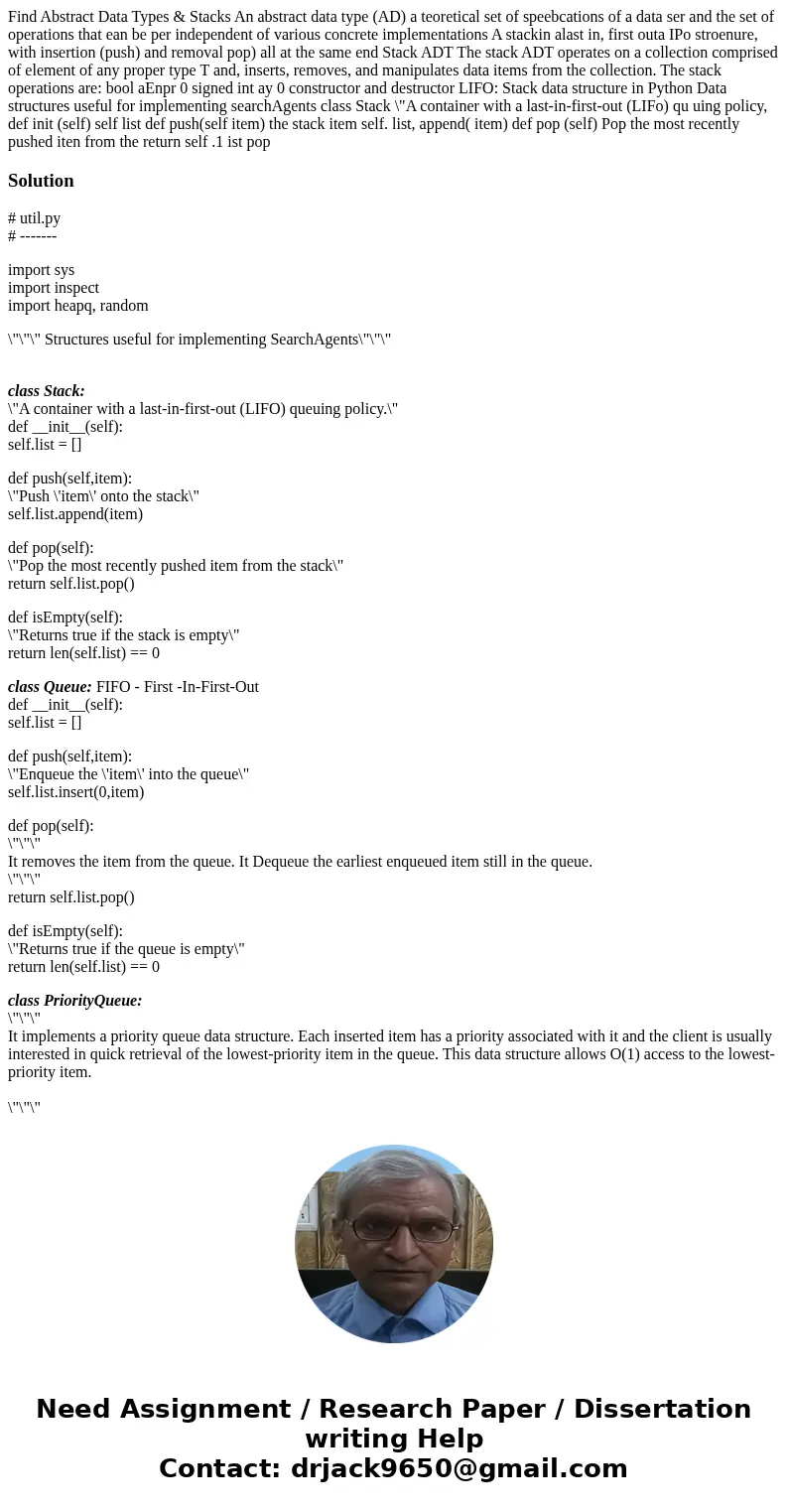
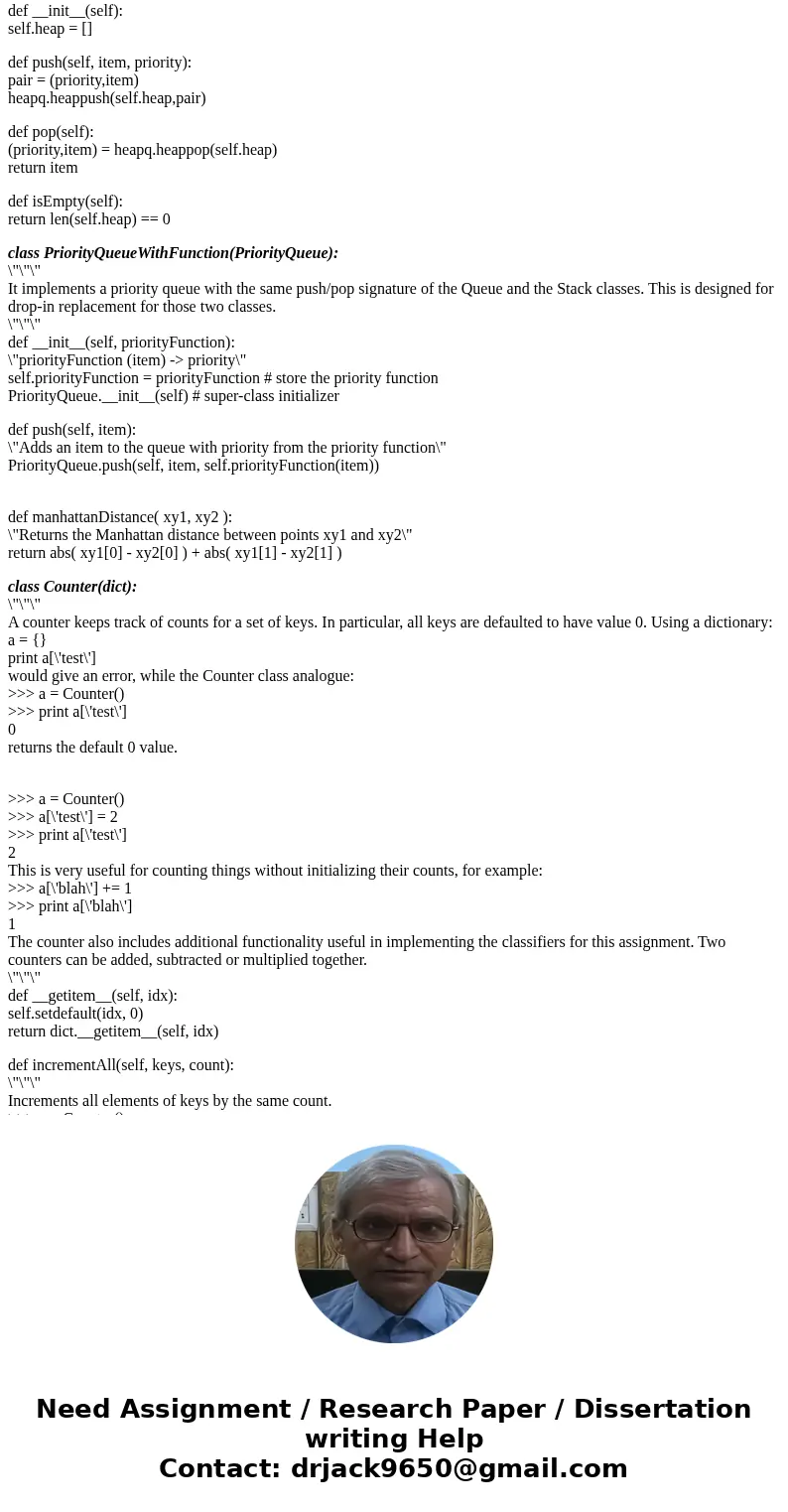
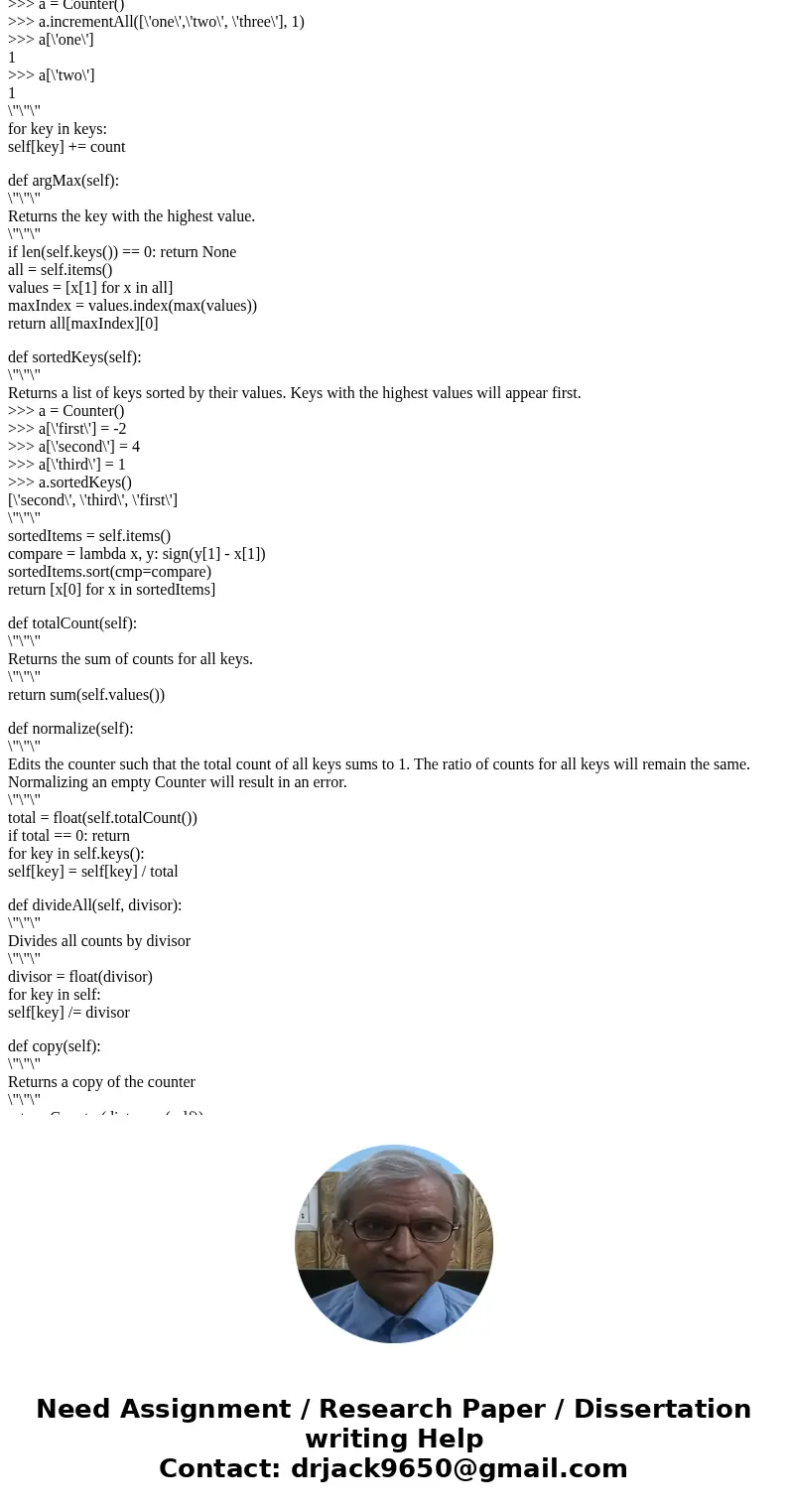
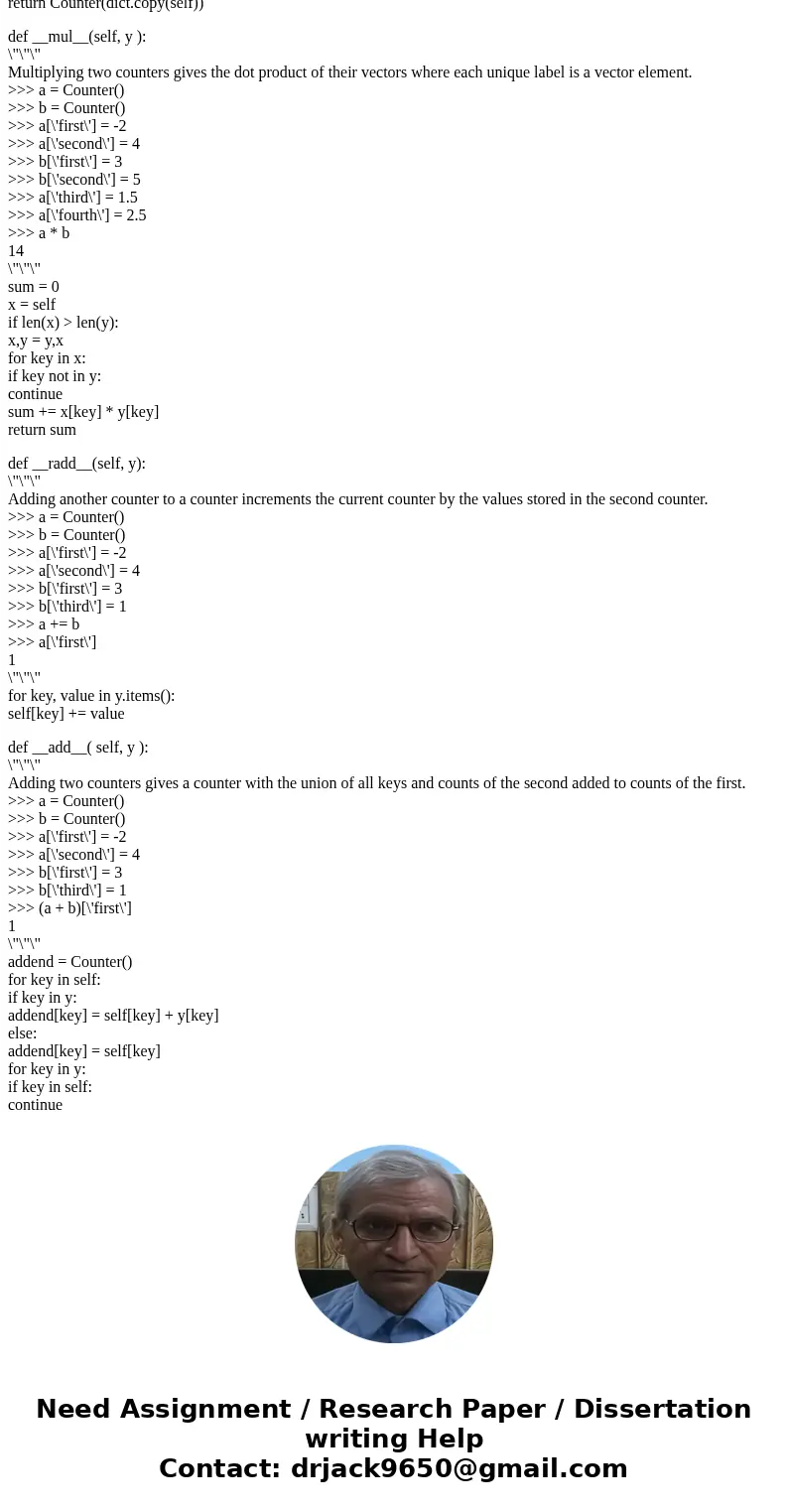
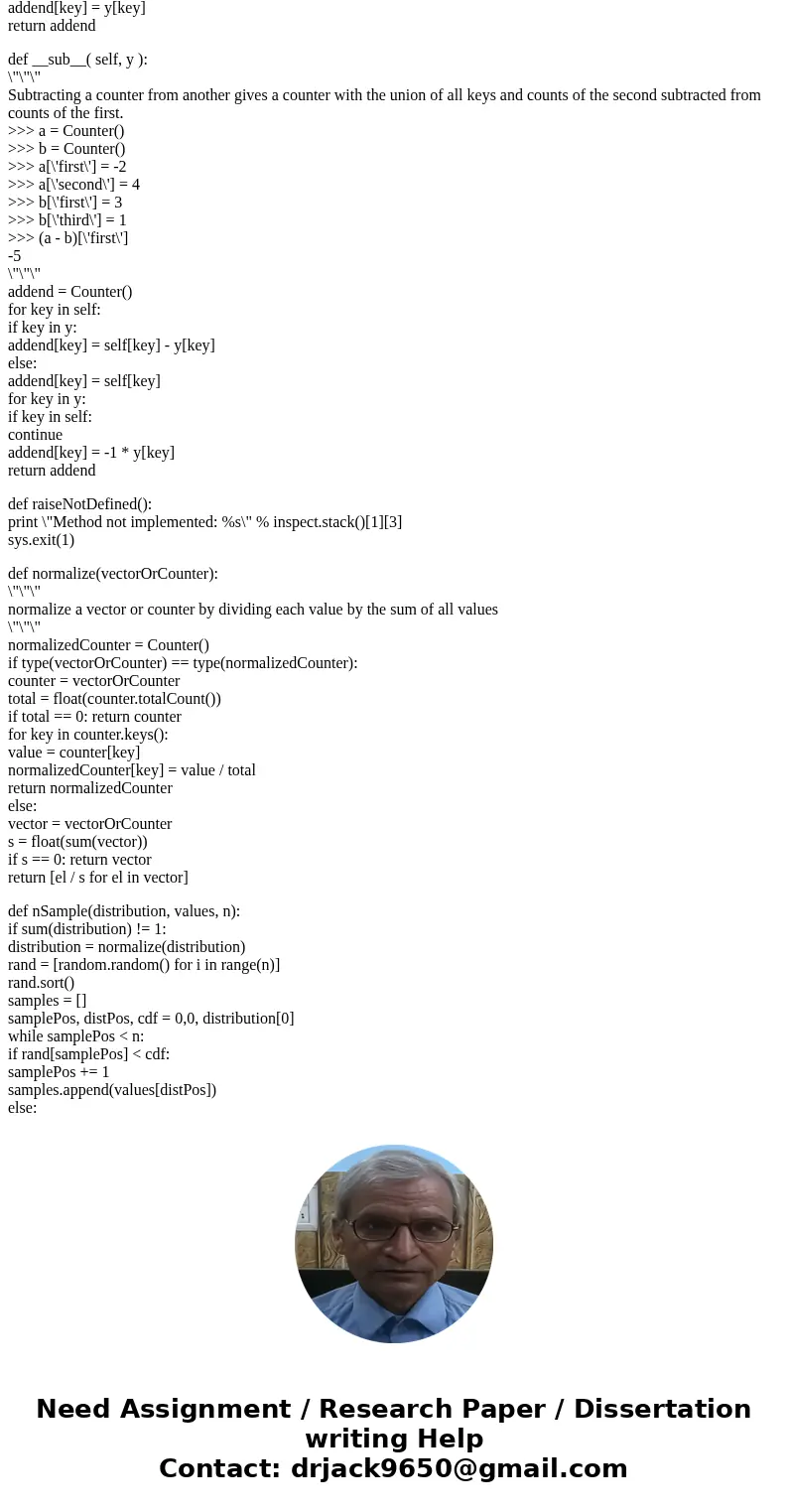
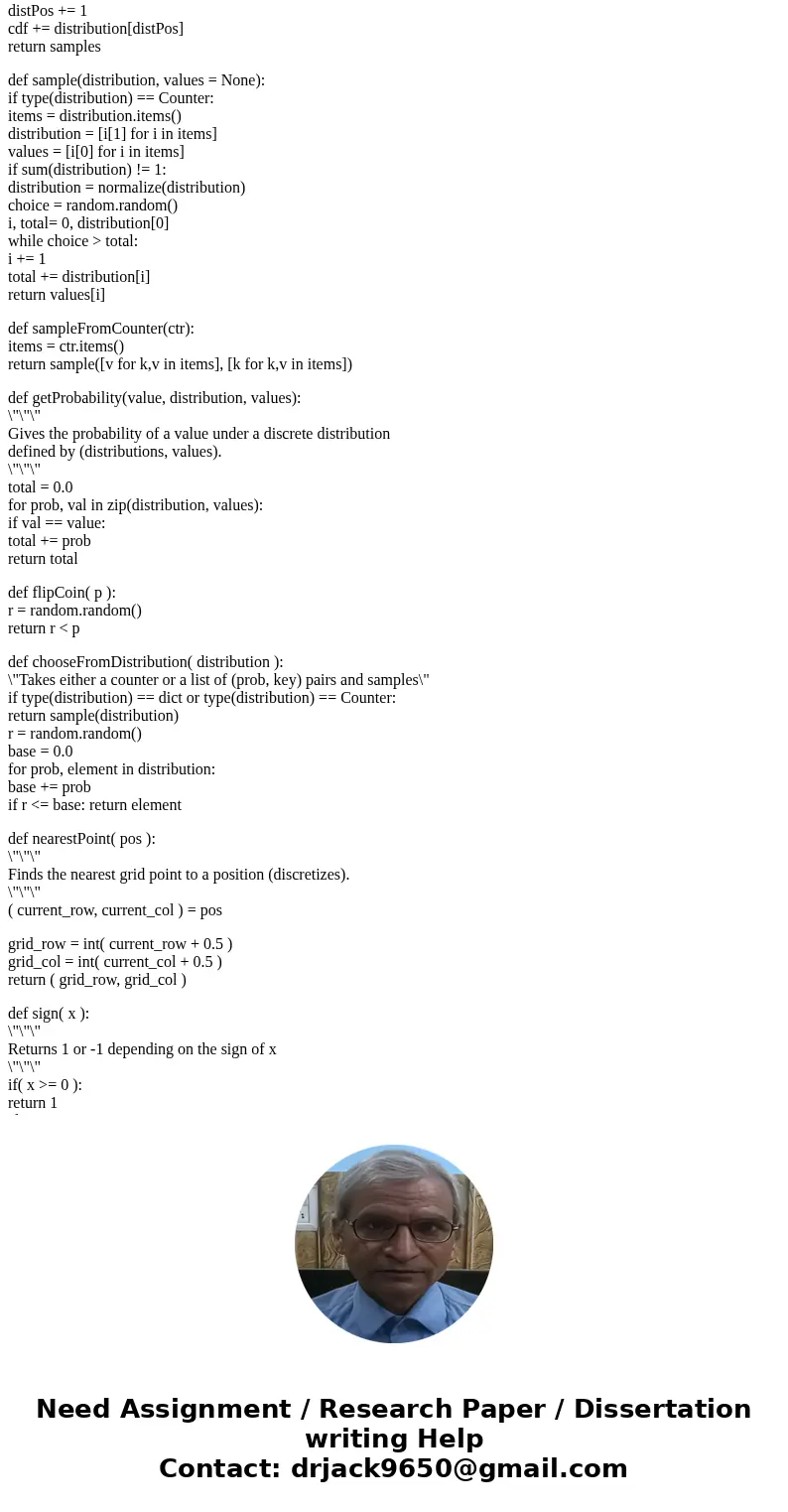
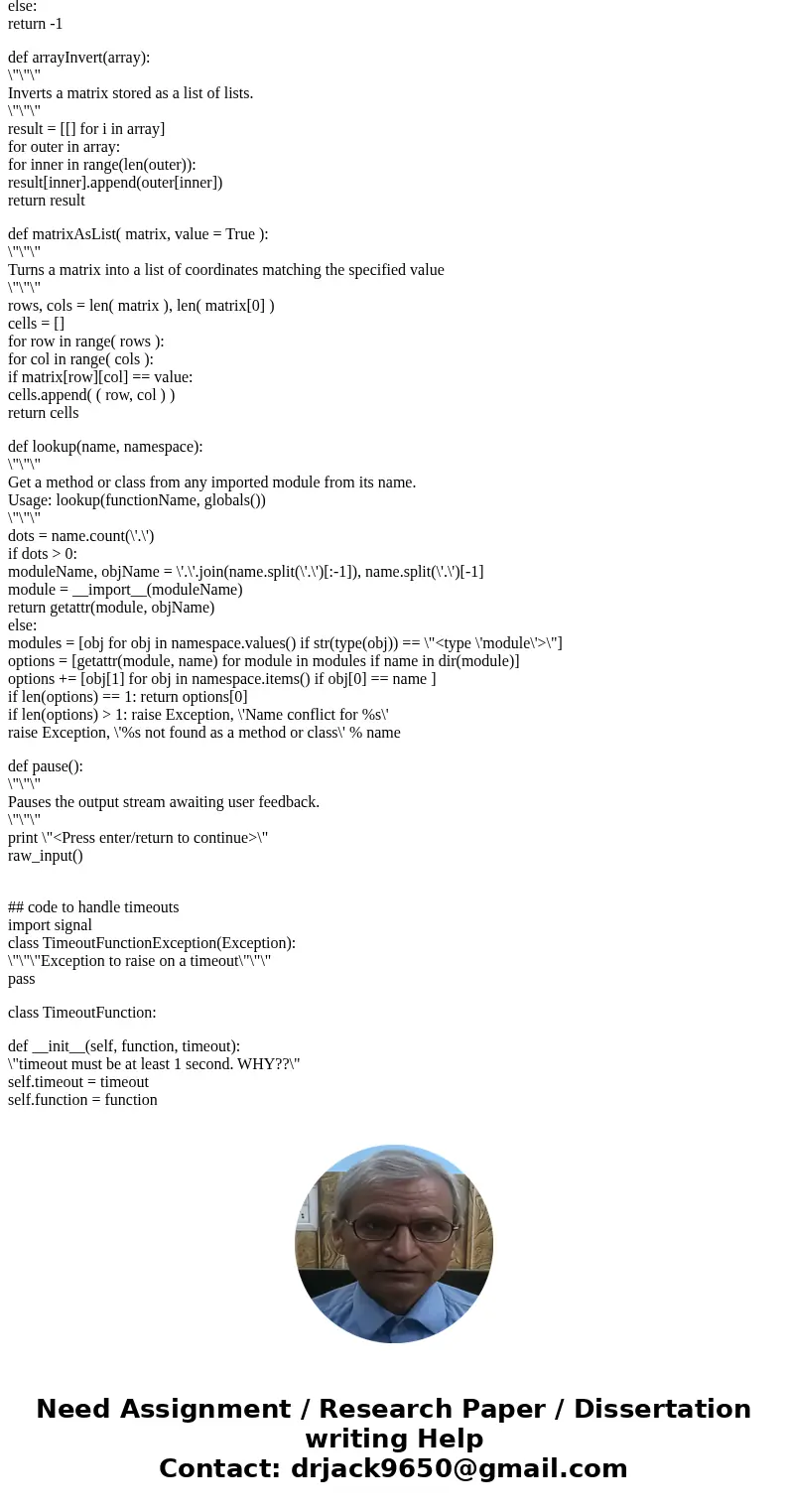
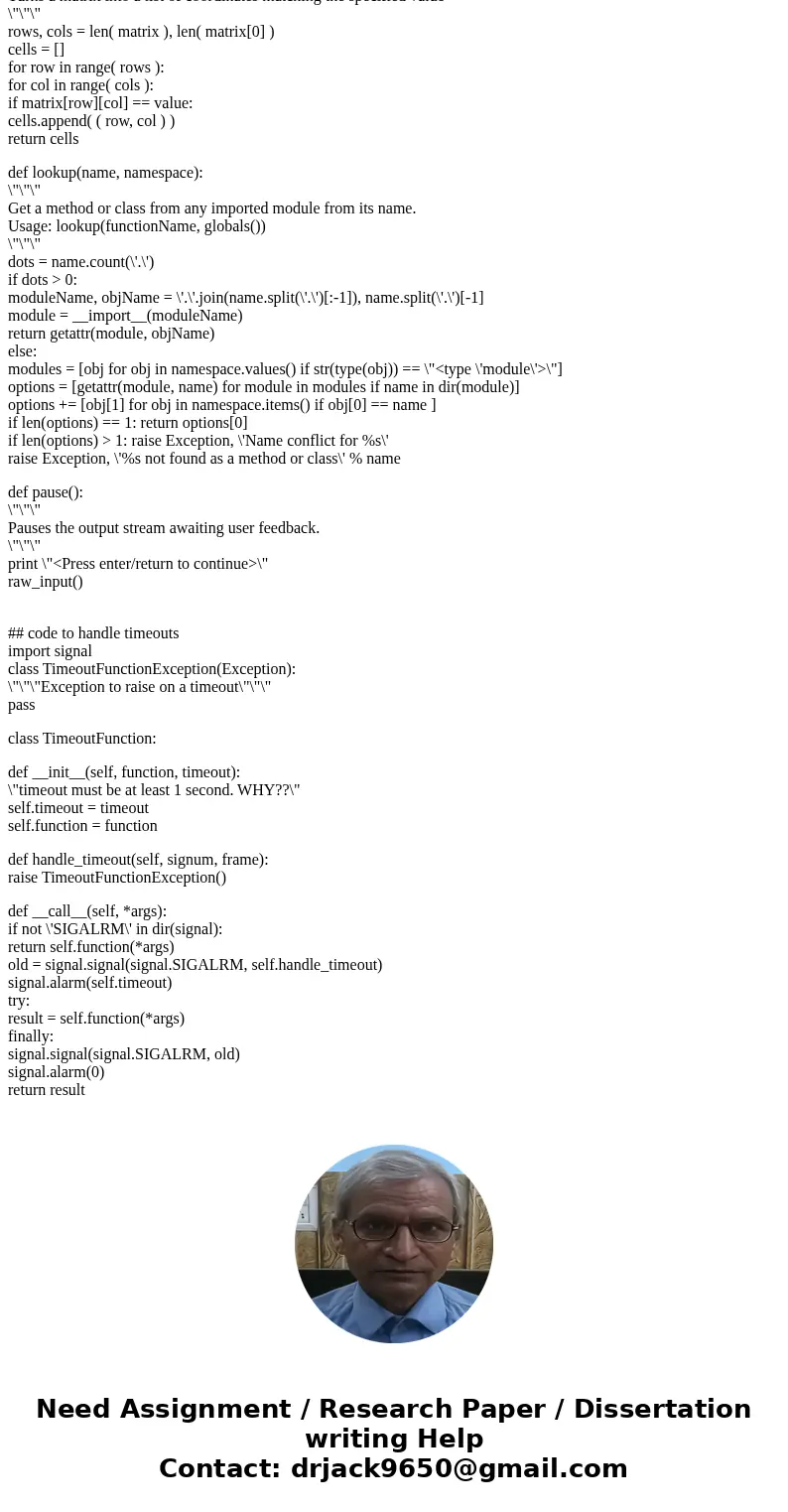
 Homework Sourse
Homework Sourse